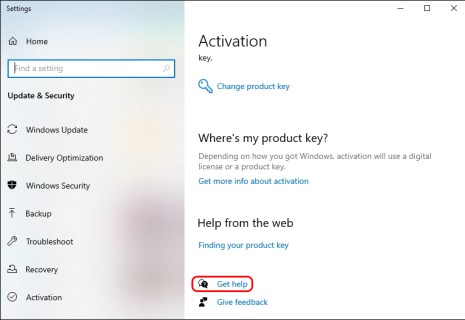Food Startup Failure: Common Reasons And How To Avoid Them

Table of Contents
Lack of Thorough Market Research and a Viable Business Plan
A solid foundation is crucial for any successful venture, and the food industry is no exception. Many food startups fail due to a lack of comprehensive market research and a poorly defined business plan.
Understanding Your Target Audience
Before you even think about recipes or branding, you need to deeply understand your ideal customer. Who are they? What are their needs, preferences, and purchasing habits? Failing to answer these questions leads to products nobody wants.
- Conduct thorough surveys and focus groups to gather data.
- Analyze your competitors' offerings and identify gaps in the market.
- Stay updated on current food trends and consumer preferences.
- Understand the specific demographics (age, income, location) and psychographics (lifestyle, values, attitudes) of your target audience. This granular level of detail is vital.
Without this detailed understanding, your marketing efforts will be wasted, and your product may not resonate with its intended audience, contributing significantly to food startup failure.
Developing a Solid Business Plan
A well-structured business plan isn't just a formality; it's your roadmap to success. It guides your operations, attracts investors, and helps you secure funding.
- Create realistic financial projections, including startup costs, operating expenses, and revenue forecasts.
- Outline your marketing and sales strategies, clearly defining your target market and how you'll reach them.
- Detail your operational plans, including production processes, supply chain management, and staffing.
- Define key performance indicators (KPIs) to track your progress and make data-driven decisions. These should include metrics relevant to your specific food business model.
A strong executive summary is essential for capturing the attention of potential investors and highlighting the key aspects of your business. Accurate financial projections are crucial for demonstrating the viability and potential profitability of your food startup.
Inadequate Funding and Cash Flow Management
Even the best idea can fail without sufficient funding and effective cash flow management. Many food startups underestimate their capital needs and struggle to stay afloat.
Securing Sufficient Startup Capital
Securing enough capital is critical for launching and sustaining your food startup. Explore various options:
- Bootstrapping: Using personal savings or loans from family and friends.
- Loans: Seeking funding from banks or credit unions.
- Investors: Pitching your business plan to angel investors or venture capitalists.
Developing a compelling pitch deck that clearly communicates your business plan, market analysis, and financial projections is crucial for attracting investors. Understanding investor expectations and managing fundraising timelines efficiently are key components to avoid food startup failure linked to insufficient capital.
Effective Cash Flow Management
Maintaining a healthy cash flow is vital for long-term survival. Implement these strategies:
- Use accounting software to track income and expenses meticulously.
- Forecast your cash flow to anticipate potential shortfalls and plan accordingly.
- Negotiate favorable payment terms with suppliers to manage your outgoing cash flow.
Regular financial reviews and budgeting are paramount. Unexpected expenses are inevitable, so a contingency plan is essential to prevent these from derailing your food startup.
Operational Challenges and Supply Chain Issues
The food industry presents unique operational hurdles. Efficient production, quality control, and supply chain management are crucial for success.
Production and Manufacturing
Scaling production while maintaining quality control is a significant challenge.
- Choose production facilities that meet your needs and allow for future expansion.
- Establish efficient and standardized processes to ensure consistency and minimize waste.
- Implement rigorous quality control measures throughout the production process to maintain high standards.
A scalable production model is crucial for growth, and this must be considered from the outset to avoid food startup failure.
Supply Chain Management
A reliable supply chain is the backbone of any food business. Disruptions can be devastating.
- Build strong relationships with reliable suppliers to ensure a consistent supply of ingredients.
- Manage inventory effectively to avoid stockouts or spoilage.
- Mitigate supply chain risks by diversifying your suppliers and having contingency plans in place.
Understanding the potential vulnerabilities in your supply chain and developing strategies to address them are crucial to avoid food startup failure.
Ineffective Marketing and Branding
Even the best product will fail if nobody knows about it. Strong branding and effective marketing are essential for food startups.
Developing a Strong Brand Identity
Your brand is your story, your promise, your personality.
- Develop a compelling brand story that resonates with your target audience.
- Design a memorable logo and visual identity that reflect your brand values.
- Create consistent brand messaging across all platforms to build recognition and trust.
Brand consistency is vital for building a loyal customer base and avoiding food startup failure stemming from weak brand recognition.
Implementing Effective Marketing Strategies
Reach your target audience through various channels:
- Leverage social media marketing to build community and engagement.
- Create valuable content (blog posts, recipes, videos) to attract and educate your audience.
- Utilize email marketing to nurture leads and drive sales.
- Consider paid advertising on social media or search engines.
- Explore public relations to generate media coverage and build credibility.
Data-driven marketing is essential to measure the ROI of your efforts and optimize your campaigns.
Conclusion
Food startup failure often stems from neglecting key areas: insufficient market research, inadequate funding, operational inefficiencies, and ineffective marketing. Meticulous planning, strong execution, and adaptability are crucial for navigating the challenges of the food industry. Avoid these common mistakes by creating a robust business plan and conducting thorough market research before launching your food startup. To learn more about avoiding food startup failure and significantly increasing your chances of success in the competitive food industry, explore resources like [link to relevant resource]. Remember, a well-defined strategy and a commitment to continuous improvement are essential ingredients for success in this dynamic market.

Featured Posts
-
 Jozanne Van Der Velden Terugkeer In De Venlose Politiek And Ambitie Wethouder
May 29, 2025
Jozanne Van Der Velden Terugkeer In De Venlose Politiek And Ambitie Wethouder
May 29, 2025 -
 Collaboration Alert Coldplay Stromae And Pomme Reimagine Arcanes Ma Meilleure Ennemie
May 29, 2025
Collaboration Alert Coldplay Stromae And Pomme Reimagine Arcanes Ma Meilleure Ennemie
May 29, 2025 -
 Where To Cop The Nike Air Max Dn8 Snakeskin Hv 8476 300
May 29, 2025
Where To Cop The Nike Air Max Dn8 Snakeskin Hv 8476 300
May 29, 2025 -
 Elfeledett Kincsek A Bukszaban Hogyan Talalja Meg Oket
May 29, 2025
Elfeledett Kincsek A Bukszaban Hogyan Talalja Meg Oket
May 29, 2025 -
 Alonso Eyes Arsenals Forgotten Talent A Repeat Of The Xhaka Success
May 29, 2025
Alonso Eyes Arsenals Forgotten Talent A Repeat Of The Xhaka Success
May 29, 2025
Latest Posts
-
 Setlist Fm Y Ticketmaster Integracion Para Una Mejor Gestion De Entradas
May 30, 2025
Setlist Fm Y Ticketmaster Integracion Para Una Mejor Gestion De Entradas
May 30, 2025 -
 R45 000 Off Select Kawasaki Ninja Models
May 30, 2025
R45 000 Off Select Kawasaki Ninja Models
May 30, 2025 -
 Balas Kee Summer Concert Series Victoria Day Weekend Launch
May 30, 2025
Balas Kee Summer Concert Series Victoria Day Weekend Launch
May 30, 2025 -
 Mengapa Kawasaki Z900 Dan Z900 Se Lebih Terjangkau Di Indonesia
May 30, 2025
Mengapa Kawasaki Z900 Dan Z900 Se Lebih Terjangkau Di Indonesia
May 30, 2025 -
 Setlist Fm Y Ticketmaster Se Unen Una Mejor Experiencia Para Fans
May 30, 2025
Setlist Fm Y Ticketmaster Se Unen Una Mejor Experiencia Para Fans
May 30, 2025
